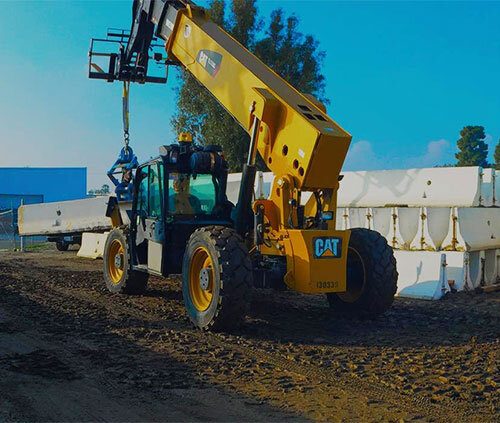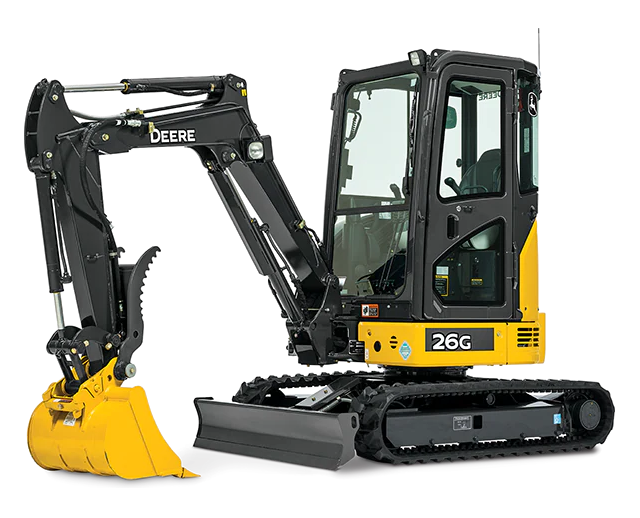Aerial Lift Rental: Versatile Lifting Solutions for High-Access Jobs
Aerial Lift Rental: Versatile Lifting Solutions for High-Access Jobs
Blog Article
Maximize Your Budget by Understanding the Expenses Connected With Building Equipment Services
Understanding the complete scope of prices connected with building devices services is crucial for optimizing your budget plan. While the first rental cost may seem simple, various additional costs-- such as transport, fuel surcharges, and maintenance-- can rapidly gather, influencing your economic preparation. In addition, understanding numerous charges and the complexities of rental arrangements can assist avoid unanticipated monetary worries. What techniques can be utilized to efficiently take care of these prices and make certain an extra reliable rental experience?
Overview of Rental Prices
When thinking about building tools rentals, recognizing the connected expenses is paramount for effective budgeting and task planning. Rental costs can vary considerably based upon numerous elements, consisting of tools type, period of rental, and area. The preliminary rental cost frequently shows the equipment's market demand and its associated functional capabilities, affecting the overall expense.
Along with the base rental rate, supplementary prices might occur, such as transportation charges, fuel surcharges, and upkeep costs. It is important to represent these extra costs to properly assess the overall expense of renting out tools. Furthermore, the rental period can affect pricing; longer leasings may get reduced rates, while short-term leasings may incur greater daily charges.

Failure of Rental Rates
A detailed understanding of rental prices is essential for contractors and task supervisors aiming to optimize their budget plans. Rental rates for building equipment typically are composed of numerous elements, including base prices, time-based fees, and usage costs.
Base rates are the core charges related to the leasing of the equipment, often established by the kind and size of the equipment. These rates can differ dramatically, influenced by elements such as tools demand, availability, and local market patterns. Time-based fees, which may be daily, weekly, or monthly, offer to accommodate various job timelines and rental durations.
In addition, rental rates might include use charges, which are appropriate when tools is made use of past a specified limit, ensuring that the rental firm can account for damage. Seasonal demand changes can also impact rental rates, with peak building periods usually regulating higher rates.
Moreover, comprehending the rental firm's policies pertaining to maintenance and insurance coverage can offer additional insight right into the total cost framework. By assessing these elements, specialists can make educated choices, making certain the selection of rental equipment lines up with both task needs and budget restraints.
Added Charges to Think About
Recognizing the details of added costs is crucial for professionals to manage their general rental expenses efficiently. Beyond the conventional rental rates, different supplemental fees can substantially affect the overall expense of equipment rental. These fees often consist of distribution and pick-up Web Site costs, which their website can differ based on range and logistics entailed in transferring the devices to and from the task site.
Furthermore, some rental firms might enforce gas additional charges if the equipment is returned with much less fuel than when leased. It is likewise important to be conscious of potential cleansing fees, specifically for customized devices that needs thorough upkeep after use.

Thoroughly reviewing the rental arrangement and making clear these added costs upfront can help service providers make certain and prevent unanticipated expenses that spending plans stay undamaged throughout the project lifecycle.
Upkeep and Repair Service Costs
Regular maintenance and fixing expenses are frequently ignored factors that can dramatically influence the general price of construction devices services. When renting devices, it is critical to consider not just the rental costs but likewise the prospective prices related to keeping the machinery in optimum operating condition.
Numerous rental business consist of standard upkeep as part of the rental contract; nevertheless, extra considerable repairs or unexpected break downs can result in additional costs. original site It's necessary to assess the rental agreement meticulously to recognize what upkeep solutions are covered and what duties fall on the renter.
Additionally, equipment that is not well-maintained can result in ineffectiveness on duty site, potentially triggering delays and boosting job expenses. To alleviate these threats, it is a good idea to carry out routine evaluations and maintain open interaction with the rental copyright pertaining to any kind of concerns that emerge throughout use.
Insurance and Responsibility Expenses
Insurance coverage and liability costs are essential elements that can significantly affect the general expenditure of building equipment services (scissor lift rental). These costs make certain that both the rental business and the client are protected from potential economic losses developing from accidents, damage, or theft throughout the rental period

In addition, clients must be aware of any type of deductibles or exclusions in the insurance plan, as these can affect prospective out-of-pocket expenditures. Understanding the terms of any type of insurance policy protection is important to prevent unforeseen prices. Ultimately, budgeting for insurance coverage and obligation expenditures can help guarantee a smoother rental experience and secure versus financial risks connected with building and construction tasks.
Conclusion
In final thought, a detailed understanding of the expenses associated with building equipment rentals is essential for efficient budget management. Ultimately, educated decision-making relating to equipment services adds to the overall success of building and construction undertakings.
Rental expenses can differ dramatically based on a number of factors, consisting of devices kind, period of rental, and place (heavy equipment rental). The rental duration can impact prices; longer rentals might qualify for affordable rates, while temporary leasings could sustain greater everyday costs
By carrying out thorough study and involving with credible rental companies, service providers can efficiently browse the complexities of rental prices, inevitably maximizing their monetary sources.
Beyond the common rental rates, different auxiliary charges can considerably affect the complete price of equipment leasing. Rental firms often give obligation insurance coverage that covers injuries to 3rd events or damage to residential or commercial property, while equipment damage insurance policy can cover the cost of repair services or substitute if the leased devices is harmed.
Report this page